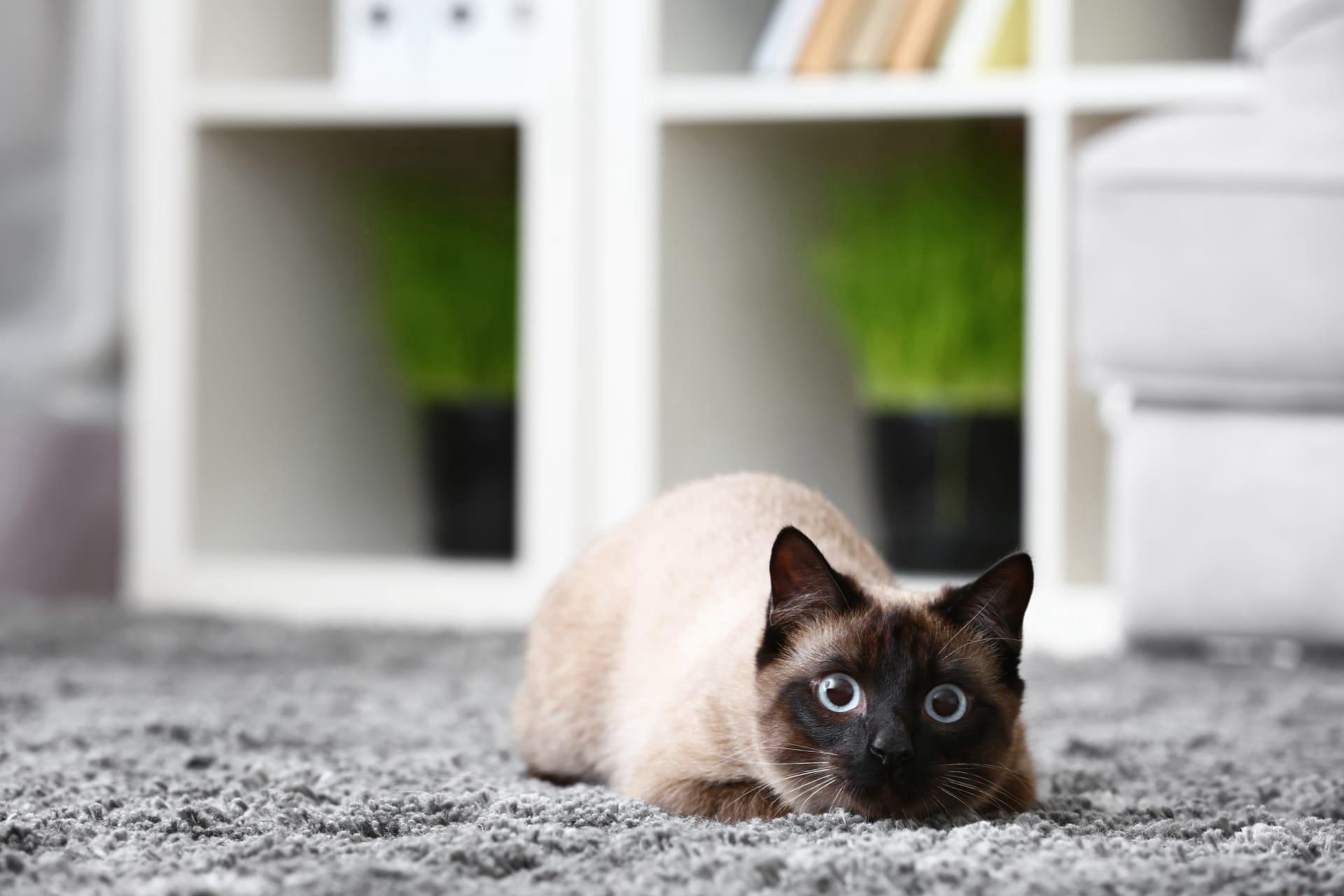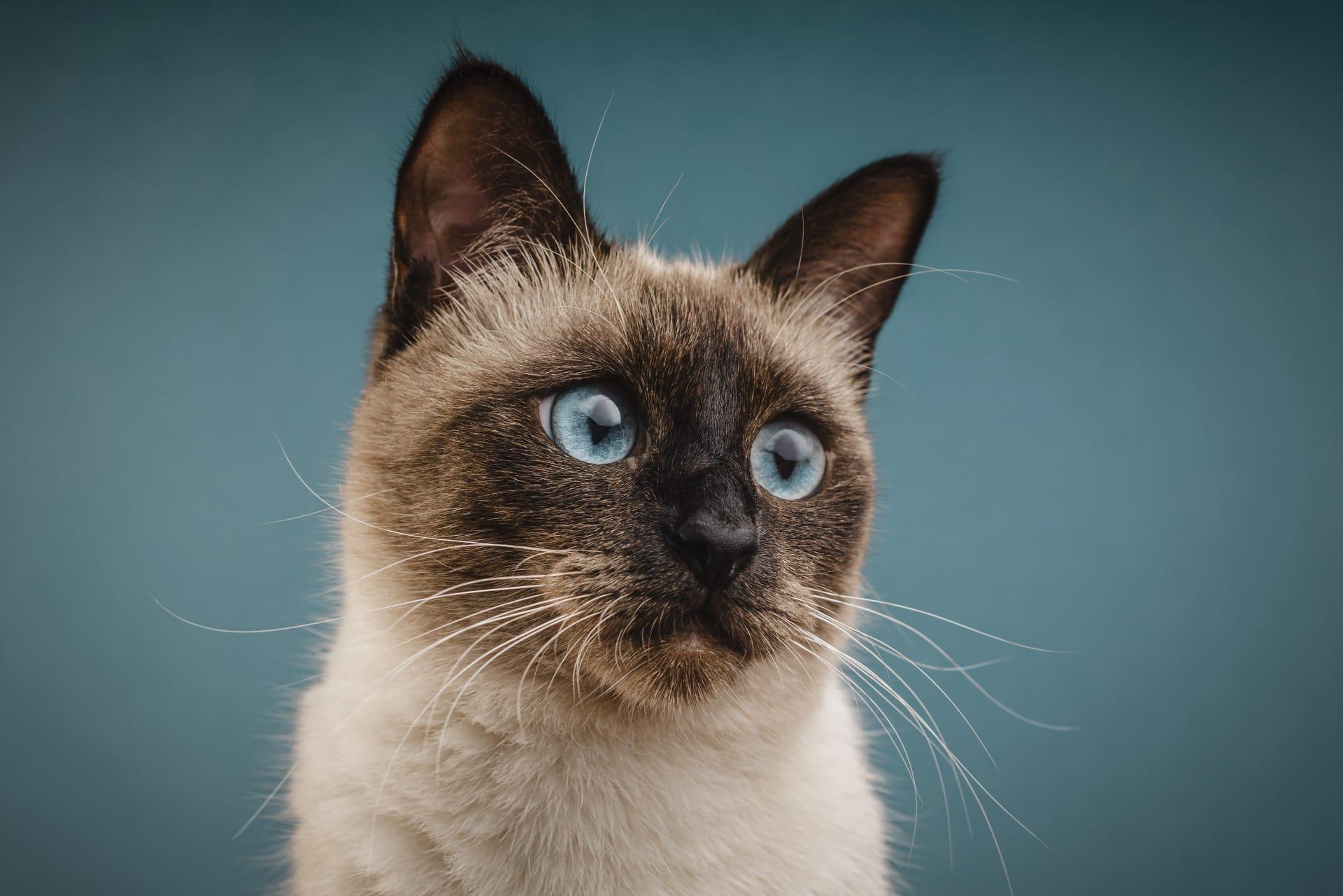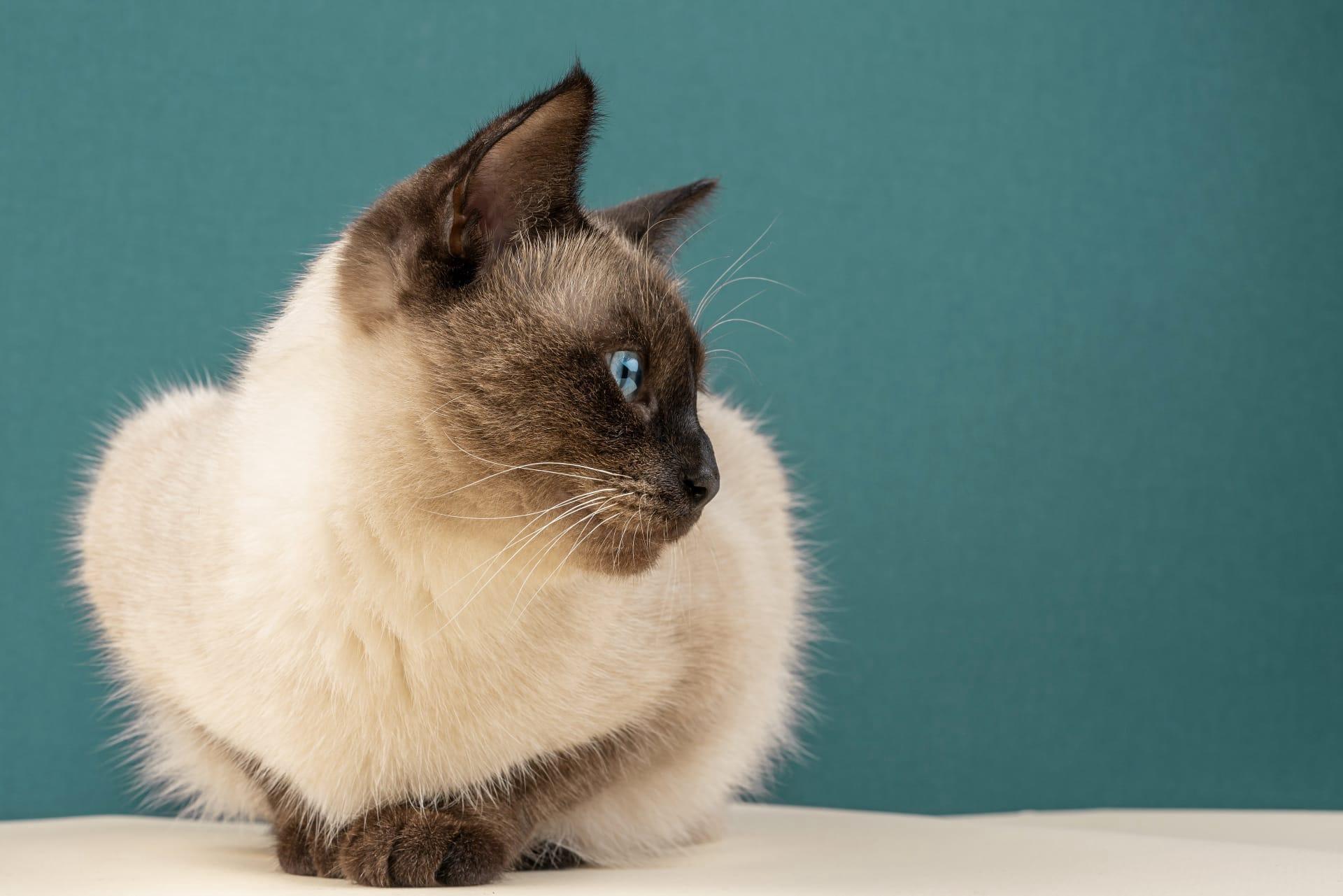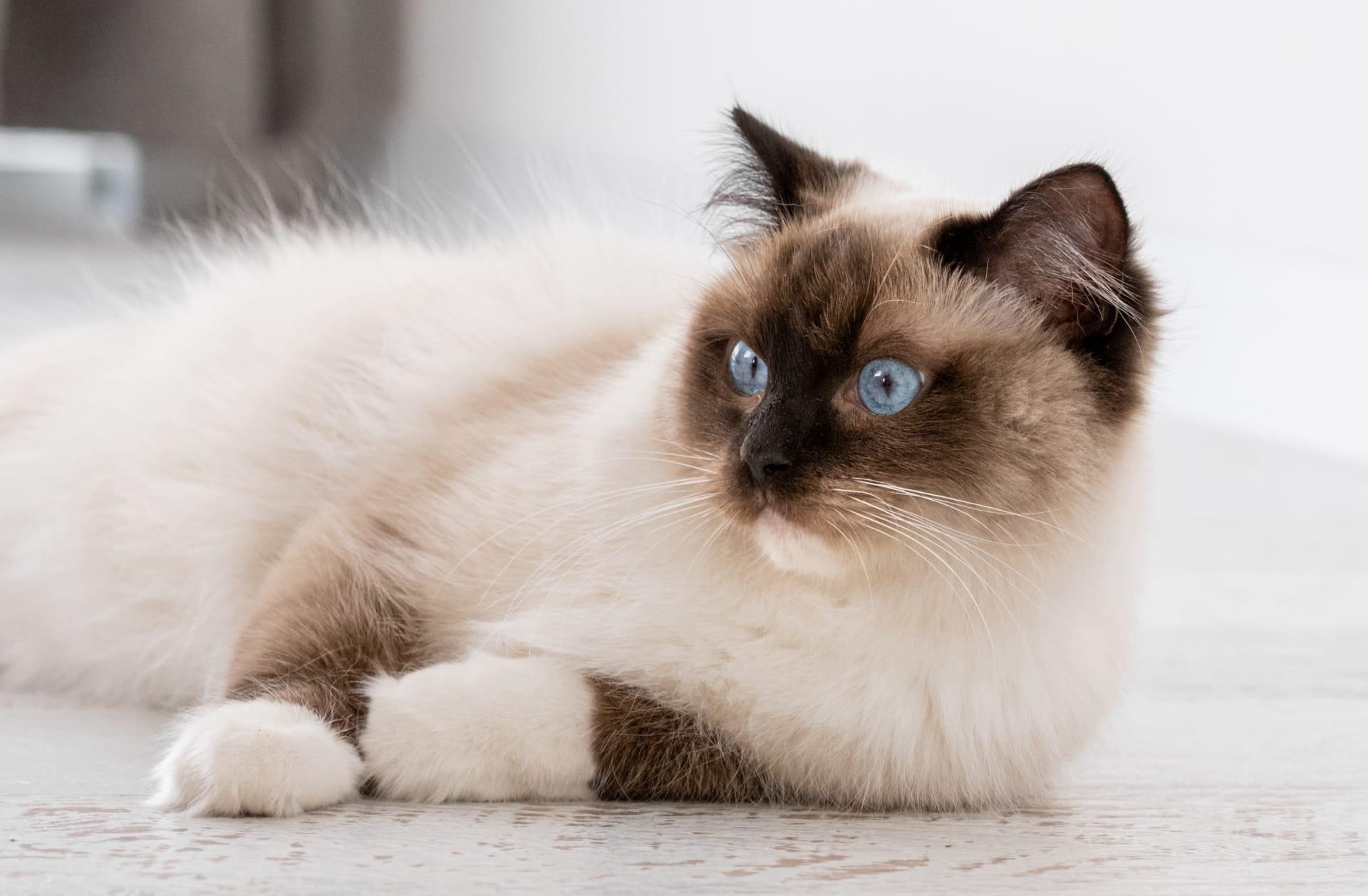Thai Cat Trivia
- Home /
- Trivia Question /
- Animal /
- Thai Cat Trivia
1
Question: What unique physical characteristics define a Thai Cat?
Answer: Thai Cats are renowned for their striking blue almond-shaped eyes, a heart-shaped face, and a sleek, muscular body. They possess a short, fine coat that comes in a variety of colors, including solid, point, and parti-color. Typically, they weigh between 8 to 15 pounds (3.6 to 6.8 kilograms) and stand about 10 to 12 inches (25 to 30 centimeters) tall at the shoulder. Their coat is known for being exceptionally soft and glossy, contributing to their elegant appearance.
Question: How does the personality of a Thai Cat distinguish it from other breeds?
Answer: Thai Cats are celebrated for their social, affectionate nature. They thrive on interaction with humans and often form strong bonds with their owners, demonstrating a level of loyalty akin to that of dogs. These cats are vocal, with a distinctive meow used to communicate their needs and desires. Their intelligence and playful demeanor make them excellent companions, capable of learning tricks and enjoying interactive toys. Additionally, Thai Cats are known for their adaptability, easily fitting into various living environments, from quiet homes to active families.

2
Question: Is it true that Thai Cats require extensive grooming?
Answer: Contrary to common belief, Thai Cats are relatively low-maintenance in terms of grooming. Their short, fine coat does not mat easily, requiring just a weekly brushing to remove loose hair and distribute skin oils. This breed is also known for its cleanliness, often grooming itself meticulously. However, regular ear checks and nail trimmings are recommended to keep them in top condition.
Question: Do Thai Cats fare well with other pets and children?
Answer: A common misconception is that Thai Cats might not get along with other pets or young children. In reality, Thai Cats are exceptionally sociable and can integrate well into households with children and other animals, thanks to their tolerant and adaptable nature. They are known to be gentle and patient, making them suitable companions for families. Proper introduction and socialization from a young age can enhance their ability to interact positively with a wide range of household members.

3
Question: What is the lifespan of a Thai Cat, and how can it be maximized?
Answer: Thai Cats have an impressive lifespan, often living into their late teens or early twenties with proper care. To maximize their lifespan, a balanced diet, regular veterinary check-ups, and adequate exercise are crucial. Providing a stimulating environment with toys and activities can also contribute to their physical and mental well-being, potentially extending their life expectancy beyond the average 15 to 20 years.
Question: Are Thai Cats prone to any specific health issues?
Answer: While Thai Cats are generally healthy, they can be predisposed to certain genetic conditions such as heart issues, including hypertrophic cardiomyopathy, and respiratory problems in those with shorter muzzles. Regular health screenings, a nutritious diet, and maintaining a healthy weight can mitigate the risk of these conditions. It's important for potential owners to work with reputable breeders who test for these conditions to ensure the healthiest possible lineage.

4
Question: How do Thai Cats react to being left alone for extended periods?
Answer: Thai Cats are known for their strong attachment to their owners, which can make them susceptible to separation anxiety if left alone for long periods. They thrive on companionship and can become stressed or exhibit behavioral issues when isolated. To alleviate potential distress, providing engaging toys, creating a comfortable and stimulating environment, and occasionally using pet sitters or interactive cameras can help keep them entertained and reassured during absences.
Question: Can Thai Cats adapt to living in smaller spaces, such as apartments?
Answer: Yes, Thai Cats can adapt well to apartment living due to their moderate energy levels and sociable nature. They do not require extensive outdoor space but do benefit from vertical spaces like cat trees or shelves to explore and observe their surroundings. Their adaptability and contentment with indoor environments make them ideal pets for apartment dwellers, provided they receive sufficient attention and stimulation.

5
Question: What kind of diet is optimal for a Thai Cat's health?
Answer: An optimal diet for a Thai Cat includes high-quality, meat-based cat food that meets their nutritional needs at various life stages. They require a balance of protein, fats, and carbohydrates, along with essential vitamins and minerals. It's also important to ensure access to fresh water at all times. While some Thai Cats may enjoy occasional treats or wet food, it's crucial to avoid overfeeding to prevent obesity, which can lead to health issues.
Question: How can potential Thai Cat owners ensure they are choosing a healthy kitten from a breeder?
Answer: Potential Thai Cat owners should look for reputable breeders who prioritize the health, temperament, and genetic testing of their cats. A healthy kitten should be active, free of visible health issues like discharge from the eyes or nose, and have a clean, glossy coat. Reputable breeders will also provide health guarantees and vaccination records. It's advisable to visit the breeder, observe the kitten's environment, and meet the parents (if possible) to assess their health and temperament, ensuring a healthy addition to the family.